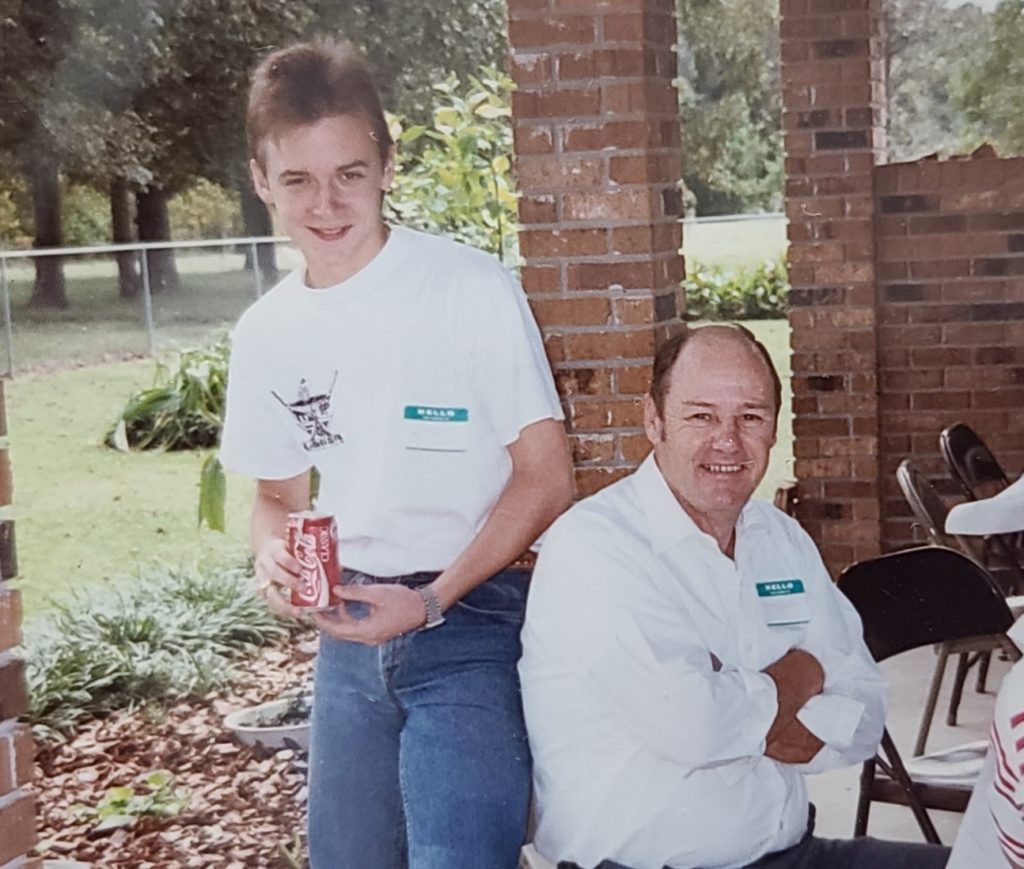“Blessed are those who mourn, for they shall be comforted.”
Matthew 5:3

There is no mistaking that 2020 has been a truly unusual year. The year started with one disaster after another, leading into a global coronavirus pandemic that so far has lasted for five months in the United States, and as long as eight months in China, where it all began. During this time reported case numbers have risen and fallen, as have deaths from this disease. With lockdowns and quarantines being enforced in cities across the nation, life has indeed changed.

Family Reunion 1990
In May, we laid my grandfather to rest after a short battle with advanced stomach cancer. He was one of my personal heroes and his legacy is one that I will carry in my heart for the rest of my days. He was a well known man in his part of the state of Louisiana, especially in the farming and baseball/softball communities. I learned a lot growing up with him about cattle ranching and my love for the “grand old game” is rooted in his mentoring and story-telling of a bygone era where baseball players were superheroes.
When he passed, we were forced into a situation of only having a maximum of 10 people available for the funeral service. We went to the funeral home and spent about an hour saying our last goodbyes and then proceeded to the small country church that I grew up in, where he would be interred with his late wife, my grandmother, who had passed away nearly 20 years ago. When we got back to the house, I became a bit depressed. Not only because my grandfather was gone to be with the Lord, but more because there were so many who did not have a chance to mourn him publicly with us or to offer us a word of encouragement and arms of comfort, as would have been normal. Later that day, my aunt (my mother’s sister) quietly and cheerfully gave me a long, comforting hug that helped me to regain peace and emotional composure. And life became very different from that moment forward.
Mourning is not an enjoyable experience, but it is a necessary one. That is why Jewish law made it so imperative that people have a time of mourning for the passing of a loved one. The time period for mourning is somewhat flexible, where it is typically seven days, but in some cases (such as with Moses and Aaron) it can be extended to 30 days. According to the laws, a person had to be buried the same day of death and then the mourning period would begin. A meal would be provided and mourners would remain with the family for the entirety of the mourning period to help serve one another and comfort each other during the time of loss.
In the second of the Beatitudes, Jesus is harkening to this Jewish practice of mourning and comforting. When we come to faith in Christ, we experience a form of spiritual death as our old life passes away and a new life begins in Him.
We were buried therefore with him by baptism into death, in order that, just as Christ was raised from the dead by the glory of the Father, we too might walk in newness of life.
Romans 6:4
Jesus likens the mourning process to our remorse and repentance from this old life. As we grieve over our sinfulness, which now motivates our life transformation, the Holy Spirit comforts us in our mourning and encourages us in our new life.
Blessed be the God and Father of our Lord Jesus Christ, the Father of mercies and God of all comfort, who comforts us in all our affliction, so that we may be able to comfort those who are in any affliction, with the comfort with which we ourselves are comforted by God. For as we share abundantly in Christ’s sufferings, so through Christ we share abundantly in comfort too.
1 Corinthians 1:3-5
Even today, only a couple of months later the pain of my grandfather’s passing is still somewhat fresh as certain memories surface. In the Christian life, we will still experience the pain of mourning our sin as we die to our old selves daily to walk in the Light of Christ. But it is in our mourning that we find His comfort. It is in grieving our sinful past that He delights in wrapping His gracious arms about our hearts. It is in the act of daily repentance that we find His peace reigning in our lives.
If we do not mourn our old life and lay it to rest, and walk in a new life, we cannot experience the comfort of our Abba Father. Our mourning is the evidence that our lives have changed. It is the realization that our lives are now missing a critical piece of who we were made to be. And it is in this mourning that our Father swoops in to fill up that emptiness with His Spirit to bring us comfort and make us whole. You can rest in Him knowing that He is the God of all comfort, who longs to encourage you and make your steps lighter and let your heart beat strongly once again.